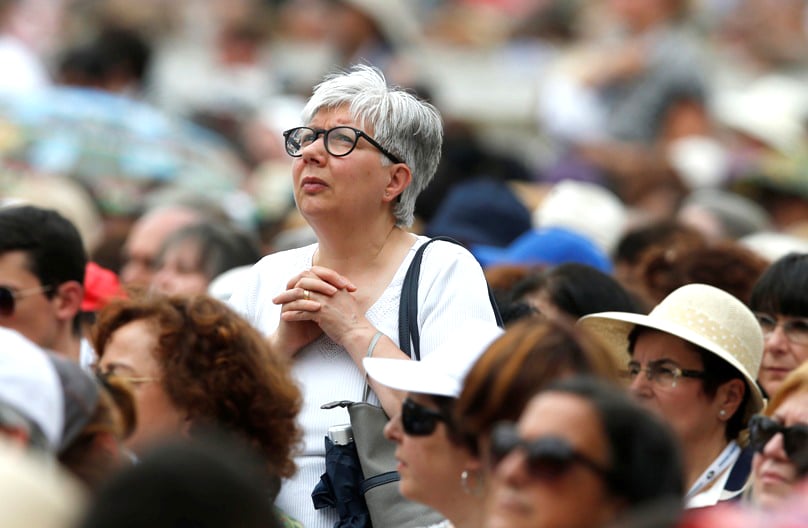
Some weeks ago The Catholic Weekly observed that in order for same-sex marriage to be accepted, one must necessarily deny that femininity has any useful or distinctive traits, gifts or contributions to make to life at either the individual or social levels. For gay marriage to flourish, in other words, femininity must necessarily be dismissed as meaningless and even useless.
Of course, the same judgement must also be made about masculinity as well. But as the push for gay marriage appears to be coming mainly from the statistically larger number of gay activist men, it is the point about femininity that is, for the time being, more salient. Meanwhile, because the arguments for same-sex marriage depend on pure mass sentiment, simultaneously avoiding or obscuring any reflection or investigation of gender, the last thing advocates of same-sex marriage can allow is any contemplation of gender’s traits and differences – much less any reflection on what these can communicate or signify.
It is in this logical cul de sac of deliberately avoiding delving deeply into the subject of gender that advocates of same-sex marriage are, for the most part, unwittingly trapped. Supporting same-sex marriage, weirdly, actually depends on avoiding thinking about sex. Yet paradoxically, femininity is essential – at least in some respects – to same-sex marriage.
A necessary component of the argument for same-sex marriage and parenting is that there is no intrinsic difference between two or more individuals of the same sex parenting children compared to two individuals of complementary sex. This is the rejection of the significance of gender. Yet for same-sex couples to be able to have access to that ultimate fashion accessory, children, the sexual exploitation of women is vital. Same-sex couples who wish to be parents must turn to persuading or paying women, here in Australia or around the world, to carry their made-to-order children to term.
It is at this point that another issue not, so far, widely discussed in the same-sex marriage debate becomes apparent: women in Third World countries and developing societies who live largely in poverty have been and are the obvious destination for the same-sex marriage future.
Forced by poverty to sell their fertility and unique capacity to bring human life to birth, it is their very identity as woman – the concept that same-sex marriage supporters deny has any meaning – that is essential to the push for same-sex parenting.
The introduction of same-sex marriage will only serve to increase a serious existing problem: the sexual exploitation of Third World women and girls who become little more than incubation units bound by contracts and market forces – hardly an advance in universal human rights. Gay men attending baby fairs in places like the Netherlands are already being advised by companies on which are the best contracts and how to enforce surrogate mothers to abort children that do not meet their specifications. And so we wonder: two hundred years ago European societies saw it as their natural right to exploit the native resources and populations of colonies throughout the world. Third World wombs for rent really make us wonder just what would have changed since then?
